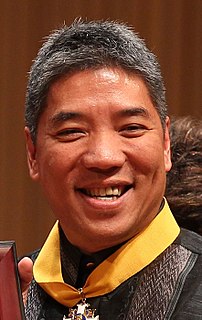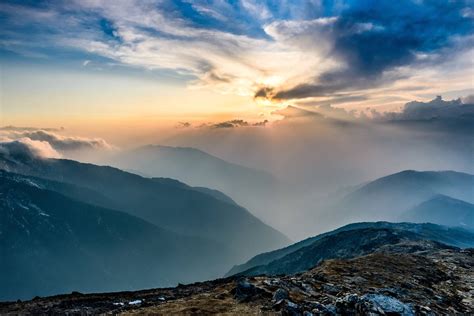A Quote by Ambeth R. Ocampo
Sometimes it pays not to be interested in what happened but in what did not happen.
Related Quotes
Not all that is presented to us as history has really happened; and what really happened did not actually happen the way it is presented to us; moreover, what really happened is only a small part of all that happened. Everything in history remains uncertain, the largest events as well as the smallest occurrence.
During part of 1941 and 1942, when the Luftwaffe was busy in Russia, the German radio regaled its home audience with stories of devastating air raids on London. Now, we are aware that those raids did not happen. But what use would our knowledge be if the Germans conquered Britain? For the purpose of a future historian, did those raids happen, or didn't they? The answer is: If Hitler survives, they happened, and if he falls they didn't happen.
Expectations are usually predicated on the idea that the everyday things that happen to ordinary people shouldn't happen to you. People hold the idea of being ordinary in absolute contempt, so when they face an illness, poverty, or any kind of catastrophe, they say, "I can't believe this happened to me." And who did you think it was going to happen to - the woman across the street? It makes them think, "I must be on the wrong path." But what if something you thought was bad was the best thing that ever happened to you? What if that was part of your path?
Expectations are usually predicated on the idea that the everyday things that happen to ordinary people shouldn't happen to you. People hold the idea of being ordinary in absolute contempt, so when they face an illness, poverty, or any kind of catastrophe, they say, 'I can't believe this happened to me.' And who did you think it was going to happen to - the woman across the street?
I graduated from Wesleyan University with a B.A. in art. I was really headed toward an architecture degree, but when I did the requirements for the major, I realized I was more interested in how people live in buildings than in making buildings. I was more interested in the interactions that happened inside the structures.
Life and study have persuaded me of the openness of history. There is no inevitability in history. Thinking about what might have happened, what could have happened, is a necessary element in trying to understand what did happen. And if, as I believe, individual acts of decency and courage make a difference, then they need to be recorded and remembered.







































